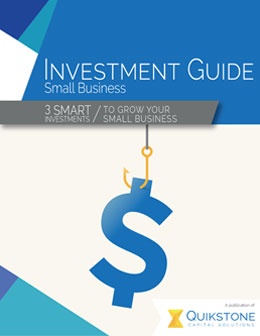 Having command over your finances is essential to the success and longevity of your small business. Even a profitable company can go under due to poor financial choices. Conversely, making wise financial decisions can take your business to new heights even when your level of business is not ideal. Here we take a look into five key areas to consider when investigating your financial health.
Having command over your finances is essential to the success and longevity of your small business. Even a profitable company can go under due to poor financial choices. Conversely, making wise financial decisions can take your business to new heights even when your level of business is not ideal. Here we take a look into five key areas to consider when investigating your financial health.
Allocating Profits
When your business is flourishing it can be enticing to make extravagant and unwise investments into your business. There’s also the temptation to overly reward your staff when business is good. A better idea is to hold onto your profits and make calculated investments in items that will further grow your business. Having a nest egg that can be used for things such as equipment upgrades, technology improvements, renovations and emergency expenses will allow you to continue operating smoothly even when things go wrong.
Sticking To A Budget
While many small business owners may dread creating a budget, doing so and sticking to it is necessary to remain profitable. It is very easy for one-off expenses to slowly eat away at your bottom line. It is a good idea to always know exactly what your expenses total and where the money is going. Avoid making unnecessary purchases and only invest in things that will help to grow your business. Set aside a portion of your profits for business growth so that is appropriately budgeted for.
Properly Leveraging Funding
One of the worst things you can do as a business owner is to go into debt with a loan or business cash advance without a clear plan on how to use that money. While borrowing money to keep the lights on may be necessary at some point, a better use of funding is to grow your business. Using funding for equipment, marketing, increasing staffing or renovations makes financial sense, whereas using it for extravagant purchases can quickly put your business in danger. Be sure any purchases you make with outside funding will show an appropriate return on your investment.
Diversifying Your Offerings
As the old saying goes, you don’t want to put all of your eggs into one basket. While your business may already be turning a substantial profit, you should always look for new markets to increase your profitability. This ensures when a certain trend or fad expires that you’re not left without a plan. While you want to be careful not to dilute your primary business or products, having something to fall back on or complement them will help you remain financially stable.
Tracking Inventory
Inventory will be one of your biggest expenses in small business and properly tracking it will have a significant impact on your bottom line. If certain products are not moving or just plain disappearing, it is important that you know. Maintaining sufficient inventory while eliminating waste is key to preserving a healthy bottom line. Additionally, closely analyzing your inventory to determine which products are bringing in a profit and which are not will help you to refine your product offerings and make the best use of your available space.





